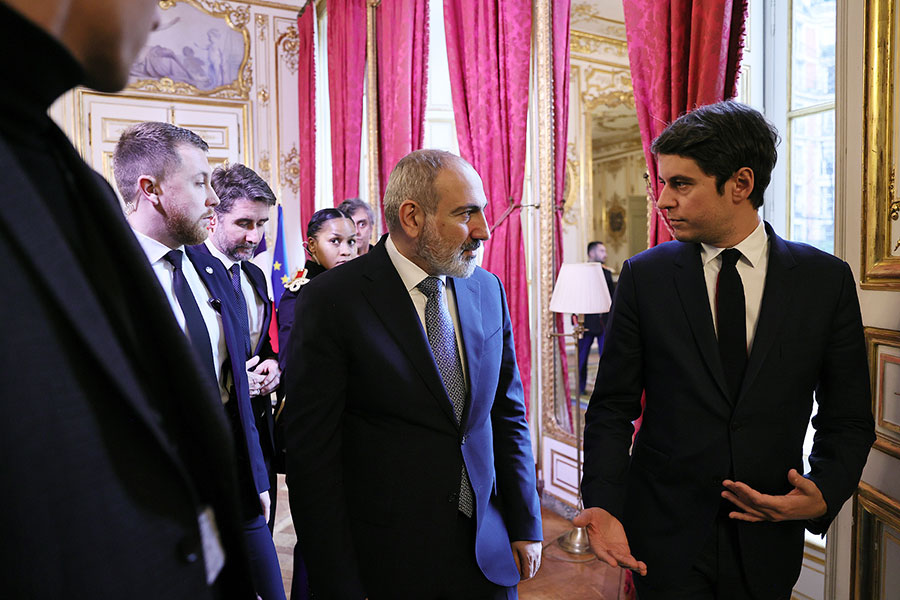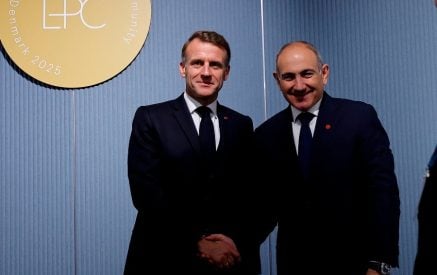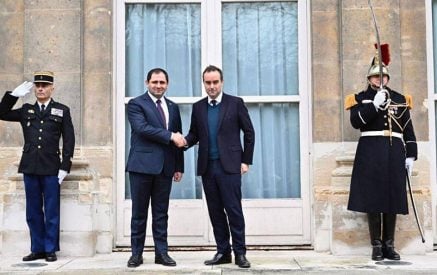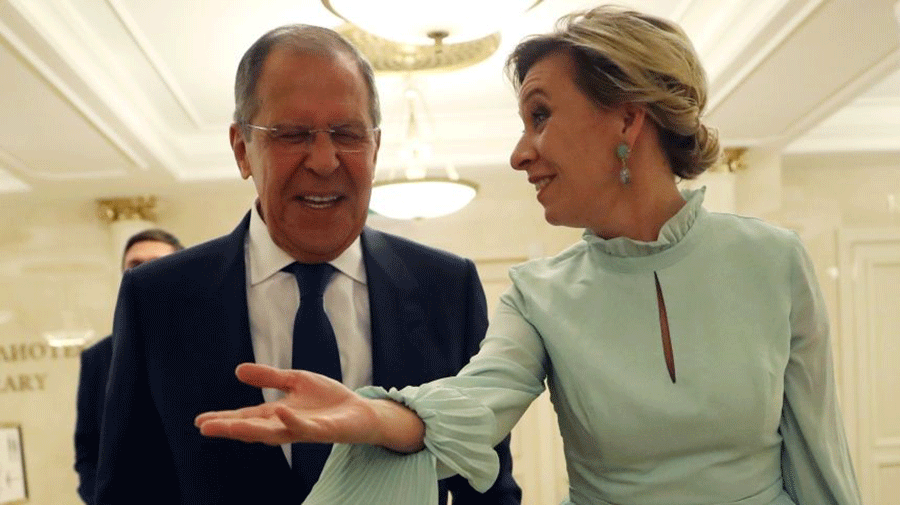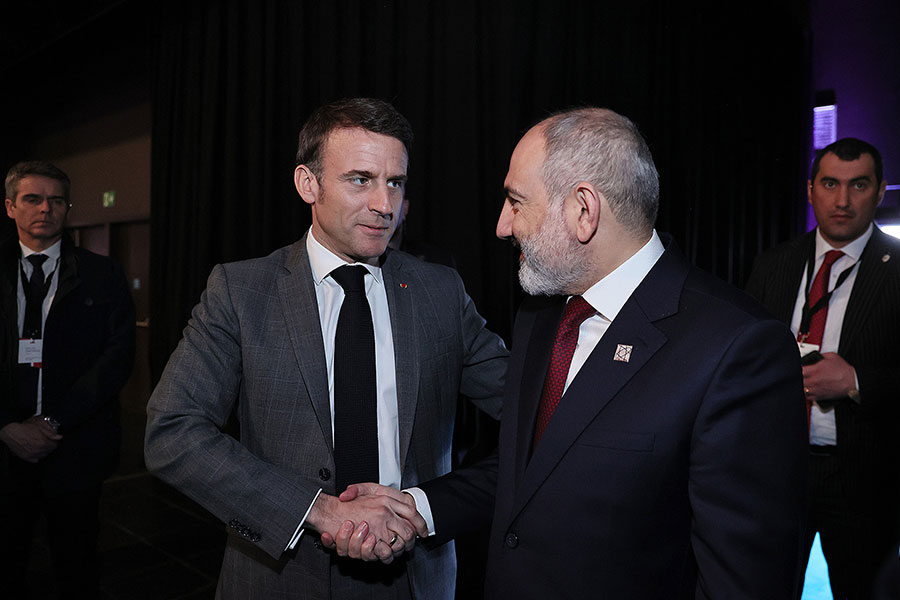French Prime Minister Gabriel Attal has accused Russia of planning to “punish” Armenia, its longtime ally whose government is drifting away from Moscow and seemingly aligning with the West.
Russia “wants to punish Armenia because it chose the path of the fight against impunity by joining the International Criminal Court” and “quite simply, because it chose democracy and the rule of law,” French media quoted him as saying late on Wednesday during an annual conference of the CCAF, an umbrella structure representing France’s influential Armenian community.
In his speech, Attal also accused Russia of condoning Azerbaijan’s September 2023 military offensive that restored Azerbaijani control over Nagorno-Karabakh and drove the region’s ethnic Armenian residents out of their homes.
The Armenian government likewise denounced Moscow and Russian peacekeepers in Karabakh last fall for not preventing or stopping the Azerbaijani assault. Russian-Armenian relations have deteriorated further since then, with Yerevan threatening to leave the Russian-led Collective Security Treaty Organization (CSTO) and even apply for European Union membership.
Read also
Russian Foreign Minister Sergei Lavrov warned early this month that Moscow will seriously “reconsider” those relations if Prime Minister Nikol Pashinian’s government does not change course. Lavrov’s spokeswoman, Maria Zakharova, said afterwards that Yerevan risks causing “irreparable damage” to bilateral ties.
Zakharova also scoffed at Armenia’s unfolding military cooperation with France underlined by French Defense Minister Sebastien Lecornu’s February 23 visit to Yerevan.
“It is naive to think that France is ready or capable of ensuring the security of Armenia,” she said on March 13. “If France had such capabilities, it would have used them in other countries where it had contractual obligations.”
She claimed that Paris is only interested in wrecking the Russian-Armenian alliance as part of the West’s “hybrid war” against Russia.
Meanwhile, French President Emmanuel Macron met with Pashinian on Thursday on the sidelines of the global Nuclear Energy Summit in Brussels. According to the Armenian government’s readout of the meeting, the two leaders reaffirmed their “determination to further strengthen multi-sectoral cooperation” between their countries.
Pashinian has repeatedly said that he wants to “diversify” Armenia’s foreign and security policy due to what he calls Russia’s failure to honor its security commitments to the South Caucasus nation. His domestic critics maintain that the policy change is reckless in the absence of security guarantees or significant military aid offered by Western powers, including France. They also say that the West cannot ease Armenia’s heavy dependence on Russia for trade and energy anytime soon.
Russia accounted last year for 40 percent of Armenian exports worth $8.4 billion. It is also main source of multimillion-dollar remittances sent home by Armenian migrant workers and Armenia’s principal supplier of natural gas. The price of Russian gas for the country has long been set well below international market-based levels.




















































